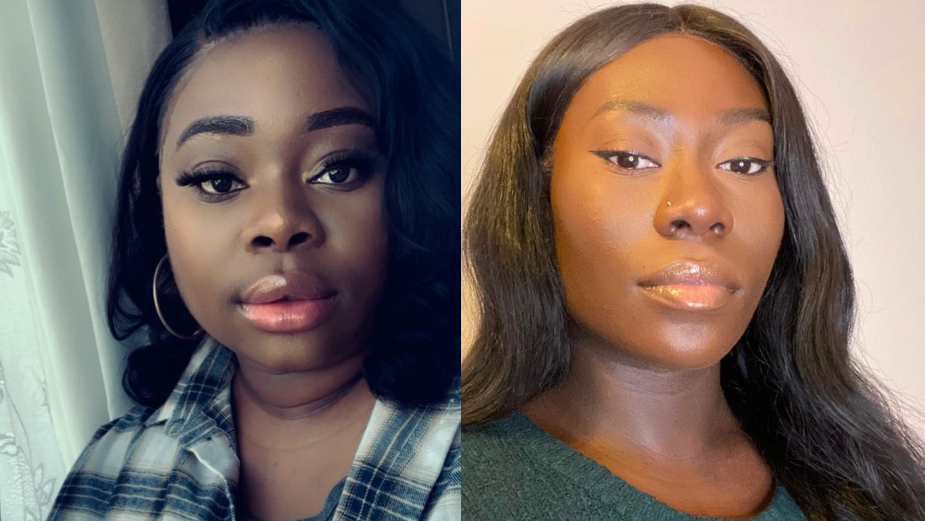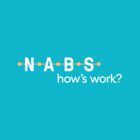
Diversity in Advertising: “Workplaces Have Done the Bare Minimum”

Rejoice Ojiaku and Wilhemina Davis are the founders of B-Digital, a social platform created for Black people within and transitioning into the marketing, advertising and media industry.
Rejoice and Wilhemina came to NABS with an idea for a panel discussion, People Who Look Like Me, to help investigate diversity and role modelling in the industry.
Ahead of this event on October 29th, Rejoice (pictured above left) and Wilhemina (right) reveal what changes they want to see in the industry and their experiences of being young and Black in advertising.
Q> What tangible difference can role models make to your career?
Both> Role models can guide you with mapping out your career path. As a student making that transition into the corporate world, there is so much you are unprepared for. Having role models can help with the reassurance that you are not alone, and if someone has done it before the likelihood is that you can do it too.
Q> Is it enough to see ‘people like you’ succeeding in the industry, or should you also actively seek out mentors and people who will sponsor you?
Both> We think that depends solely on the person and what they think is best for them, the best option is to have both readily available, so that an individual can choose the best type of mentor for them. It starts by seeing people like you succeeding in the industry. If you want somebody to sponsor you, you should be actively supported by your employer / team to find someone who will do that.
Q> Which role models do you look up to?
Rejoice> [American lawyer] Judge Lynn Toler is definitely a role model for me. She isn’t involved in the industry I work in, but in terms of humanity and character, I like how she conducts herself and the perspective she has on life, relationships, and even conflict. She speaks about the qualities you need in the workplace and in life in general.
Wilhemina> I don’t have a specific role model in the industry. I generally look up to Black women in senior positions as that’s where I would like to be one day.
Q> What’s the biggest challenge you face at work from a D&I perspective?
Wilhemina> Not seeing anyone like myself in my line of work.
Rejoice> My biggest challenge in the workplace generally is racial anxiety when starting a new job. What I mean by that is, I always get this fear around “will there be Black people on my team?” because I get anxious and think “do I have to minimise myself to fit in, so I won't be labelled?”. That has always been a challenge for me.
Q> Much of this conversation is focused on systemic racism, structural inequality and so on. What changes need to be made here and who’s responsible?
Both> When it comes to change, there’s so much that needs to be done. We think a good starting point is to acknowledge that these issues exist.
Workplaces have done the bare minimum or started initiatives that have fallen by the wayside. All this does is create a false sense of solidarity and a false sense acknowledgement of the actual problem. If anything, doing the bare minimum to look like change is gaslighting the actual complaints made by Black people. The bare minimum looks like randomly hiring that one Black person into a senior position, or taking part in Black History Month but doing nothing after that to show there is a clear understanding of why that month is important.
Real change is doing the work around how a company is challenging racial bias, what are the policies in place to protect minority groups, how does diversity and inclusion show up throughout the organisational structure and especially in leadership. These are real ways that show change in the industry.
Another significant route to change is involving the voices of Black people in the conversation. Be honest, is your discussion centred around white feelings? Ultimately this responsibility is for leadership to implement change within the structure of a business. From there, everybody has to be responsible for making that change happen. It would be impossible to leave this all to one person to implement, however change should start from those in senior and leadership roles; they should lead by example.
Q> Have you experienced any positive change yet in the industry following BLM?
Both> The industry is having more of the necessary conversations required and ensuring that they are educating themselves regarding BLM and all that it stands for. We should start seeing the results a year from now; we’ll be able to tell who’s doing the bare minimum (i.e. thinking that hiring one Black person is enough) and who’s striving to ensure permanent change.
Other changes in place that we have seen to date are around accountability on others to be clear with their policies on how to report incidents of racism and creating policies that call out injustice. There’s also good work happening around mental wellbeing. This is vital and organisations have to step up to their duty of care here.
NABS’ panel talk, People Who Look Like Me takes place on Thursday, October 29th, 12:30pm – 1:30pm on Zoom.
Rejoice and Wilhemina will be joined by Aaron Raybe, UK director of live events, Momentum Worldwide and Lauren Ogúndèkó, head of response/board director, co-chair of Omnicom Media Group Multicultural Advisory Board, Member @ MEFA for this challenging, informative and inspiring panel discussion, chaired by Uzma Afridi, head of careers at NABS and MEFA role model.
To register for your free place click here.











